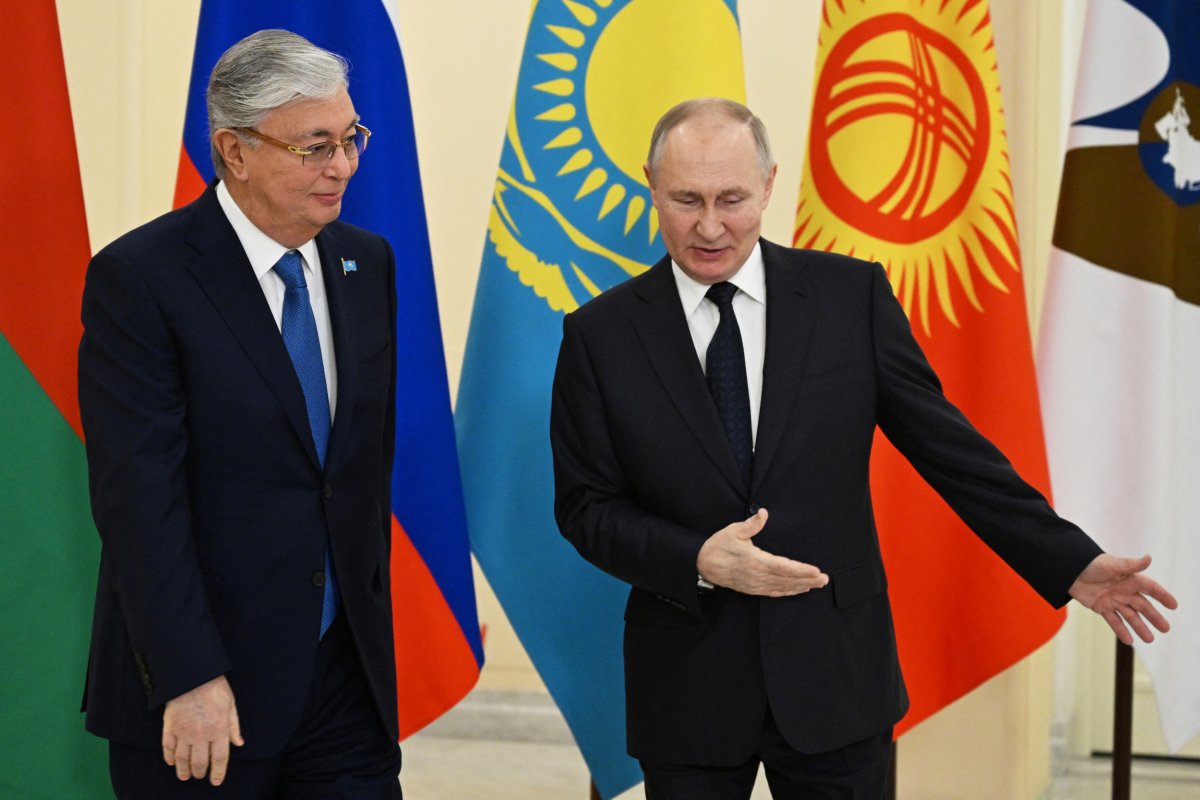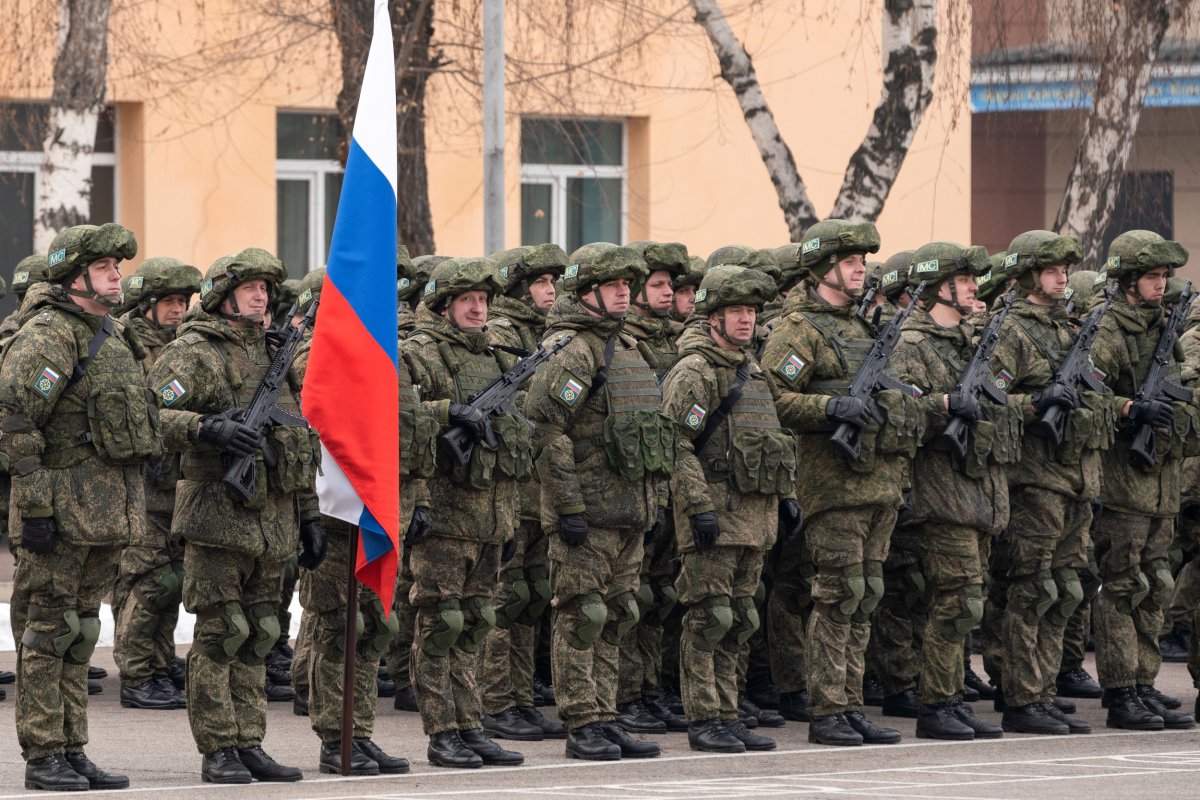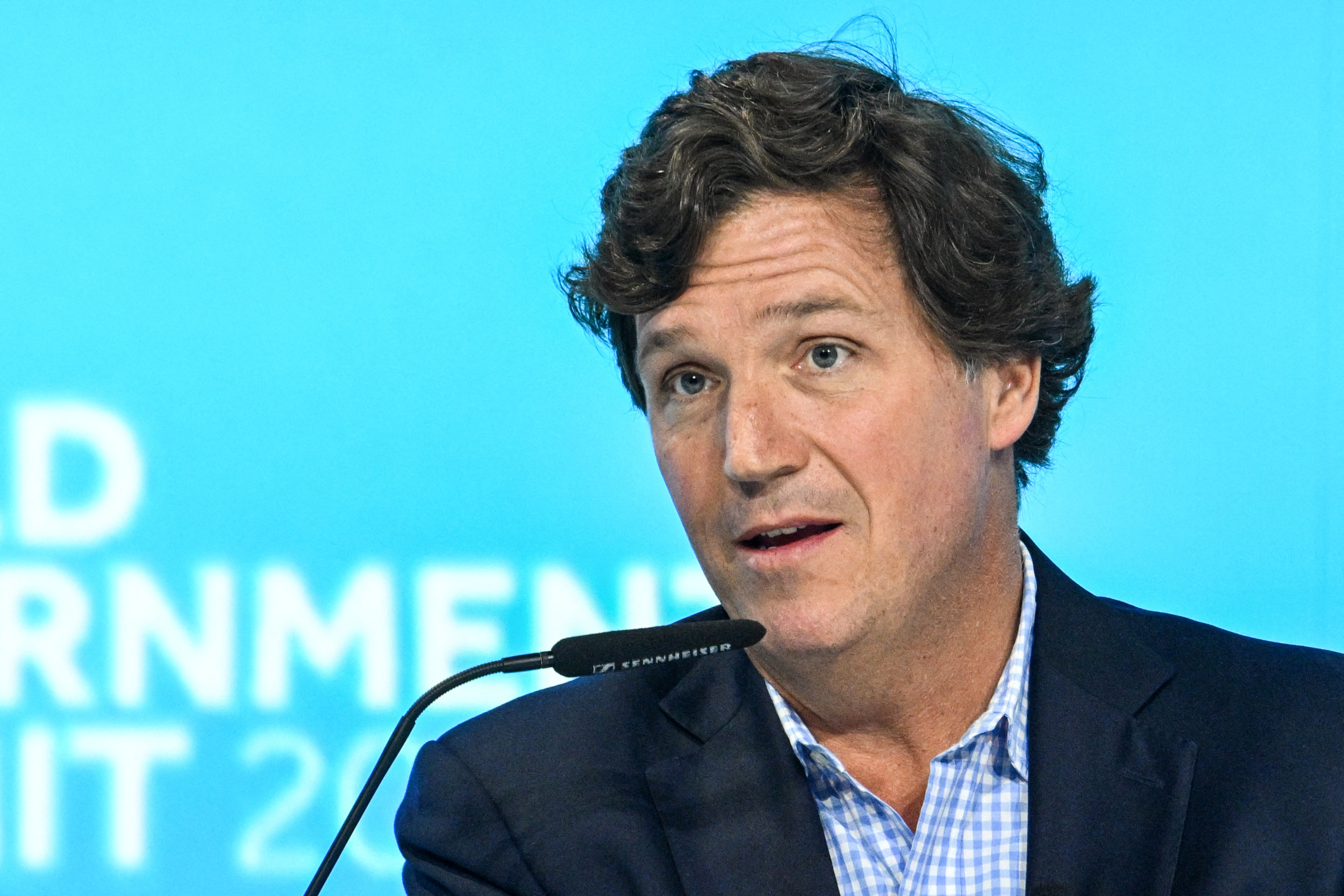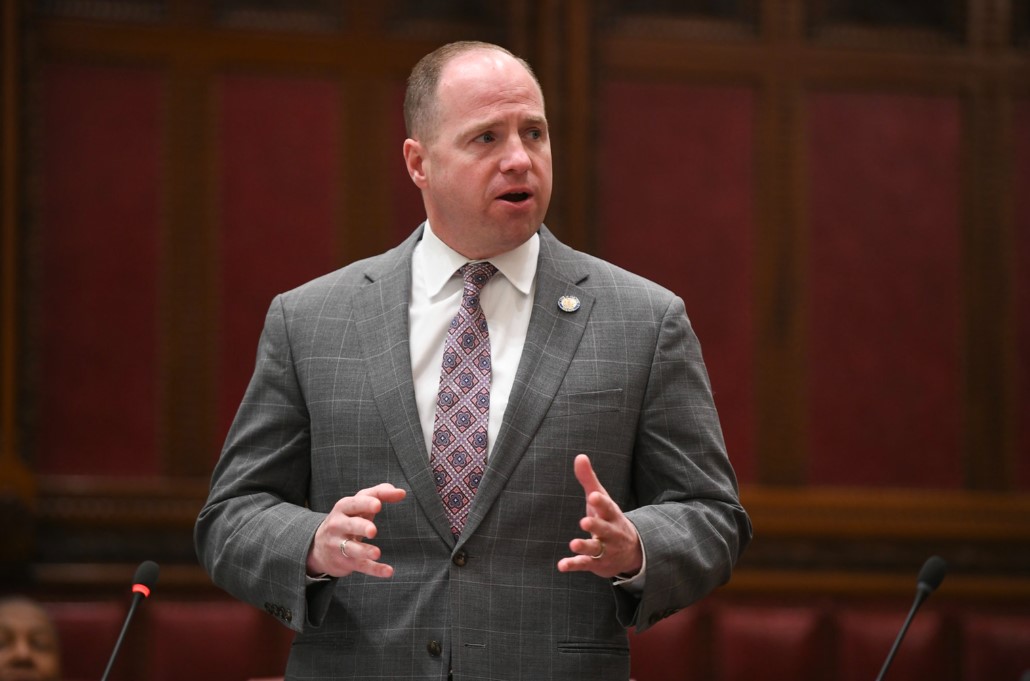Problems are mounting for Russian businesses operating in neighboring Kazakhstan, according to a major commercial organization, as historic ties between the two former Soviet nations seemingly fray amid Moscow's war on Ukraine and showdown with the Western world.
Nikolai Dunaev, the vice-president of the Opora Rossii—the All-Russian Non-Governmental Organization of Small and Medium Business—told the Izvestia news outlet on Monday that Russian payments to Kazakhstan are facing mounting delays because local banks fear being targeted by secondary sanctions for doing business with Moscow. Newsweek has contacted the Russian Foreign Ministry by email to request comment.
Payments are reportedly being held up for several weeks while some major banks—such as Halyk Bank, which operates in Kazakhstan, Kyrgyzstan, Georgia, Russia, Tajikistan and Uzbekistan—refuse to process any payments linked to Russia.
Foreign banks in several countries have become more hesitant to deal with sanctioned Russian entities following President Joe Biden's decision in December 2023 to allow the Treasury Department to impose secondary sanctions on those that do.
Processing problems for Russian customers have been reported in countries such as China, Turkey and the United Arab Emirates.

The latest Russian concerns come against a backdrop of redrawn relations with close Central Asian partners amid Moscow's full-scale war on Ukraine, launched in February 2022. Kremlin aggression, and subsequent Western sanctions, have unsettled Central Asian capitals long aligned with Moscow.
Kazakhstan is one of Russia's most-reliable allies in the region, with Astana further indebted to Moscow after Russian security forces helped put down a nationwide uprising against the ruling government in early 2022. Kazakhstan is a member of the Russian-led Collective Security Treaty Organization (CSTO) and Eurasian Economic Union (EEU).
However, Kazakhstan has repeatedly abstained—rather than voted against—United Nations General Assembly votes against Russia's actions in Ukraine. In September 2022, Astana refused to recognize Russia's claimed annexation of four partially occupied Ukrainian regions.
One senior government official told Reuters the following month that President Kassym-Jomart Tokayev was reevaluating bilateral ties with Moscow. Meanwhile, the country has been looking westwards for more economic cooperation with the European Union.
Tokayev has also spoken with Ukrainian President Volodymyr Zelensky several times and welcomed tens of thousands of Russians fleeing President Vladimir Putin's mobilization orders.
Kazakhstan's perceived reluctance to support Moscow has prompted anger among pro-war nationalists in Russia. Former President and Prime Minister Dmitry Medvedev, for example, has dismissed the country as an "artificial state" and called for a Soviet Union revival under a "Slavic people" umbrella.
This weekend, a leaked audio recording of lawmaker Andrey Gurulyov suggested that Kazakhstan's intransigence may be met with Russian military action. Such threats are long-standing. In November 2022, political analyst Dmitry Drobnitsky appeared on top propagandist Vladimir Solovyov's television show and said that Kazakhstan could pose a threat to Russia.
"Let's note that the next problem [after Ukraine] is Kazakhstan because the same Nazi processes that were happening in Ukraine could begin there," Drobnitsky said, invoking the stock Kremlin false allegation that Ukraine has a fascist government.
Kazakhs are paying attention. A May 2023 poll of 1,100 people conducted by non-government organizations MediaNet and PaperLab found that the number of people who think Russia may invade Kazakhstan has risen to 15 percent from 8.3 percent in a previous poll.
However, Kazakhstan has not abandoned Moscow. The country has emerged as a key sanctions-busting route for Russia amid the Western clampdown, particularly for technology needed to outfit Moscow's most-advanced weaponry.
The value of microchip imports to Kazakhstan increased from $35 million in 2021 to $75 million in 2022, for example, while the value of its exports of microchips to Russia rose from $245,000 in 2021 to $18 million in 2022. A 2023 OCCRP [Organized Crime and Corruption Reporting Project] report suggested that Kazakhstan is also serving as a conduit for drone technologies to be delivered to Russia.
Kazakhstan's Trade and Integration Minister Serik Zhumangarin told Radio Free Europe/Radio Liberty (RFE/RL) last summer that Astana cannot stop all sanctioned goods. He added there were "7,000 types of goods that were the object of sanctions" on the list provided to the country.

"When we spoke with them, we said: 'This cannot all be blocked or traced,'" Zhumangarin said of his conversations with Western representatives.
Economic ties across the 4,500-mile Russia-Kazakhstan border have flourished since Moscow saved Tokayev's administration in early 2022. The years since have recorded record highs in economic cooperation, with trade valued at $26 billion in 2022 and $27 billion in 2023.
"Kazakhstan has pledged to uphold Western sanctions on Russia, but for every visit of Kazakh ministers to Washington to discuss sanction regulations, another visit is made to Russia to pledge continued alignment with Putin," Kate Mallinson of the Chatham House think tank in the U.K. wrote in February.
Uncommon Knowledge
Newsweek is committed to challenging conventional wisdom and finding connections in the search for common ground.
Newsweek is committed to challenging conventional wisdom and finding connections in the search for common ground.
About the writer
David Brennan is Newsweek's Diplomatic Correspondent covering world politics and conflicts from London with a focus on NATO, the European ... Read more
To read how Newsweek uses AI as a newsroom tool, Click here.








